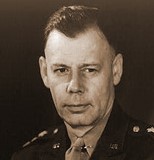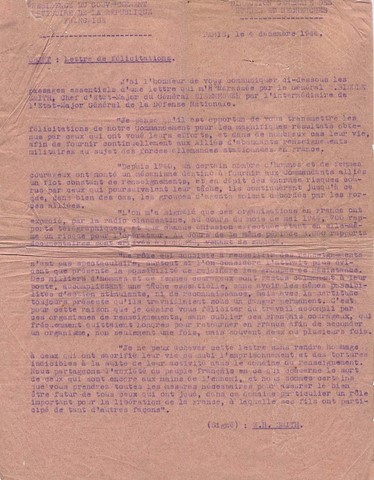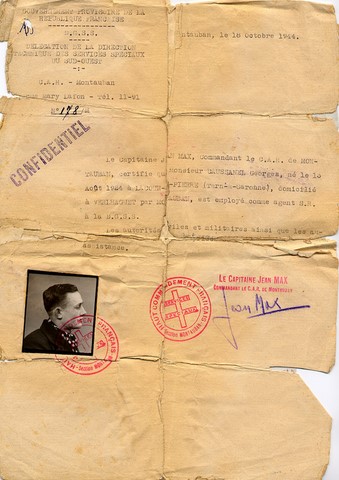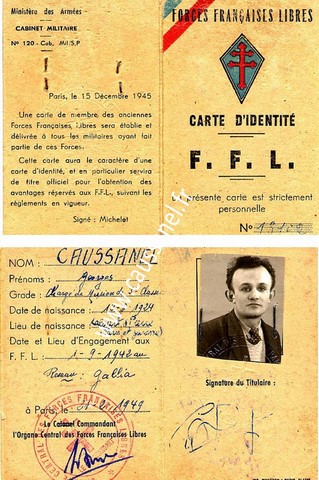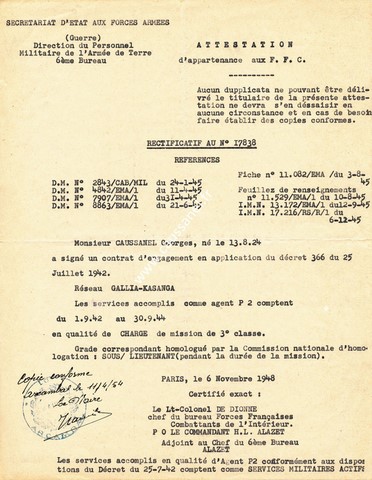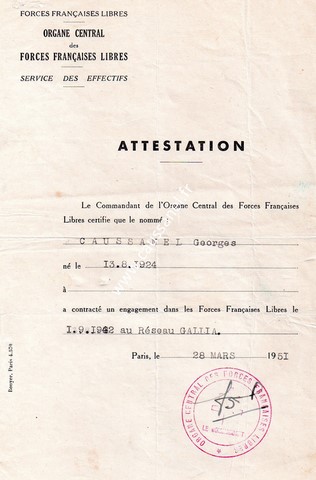INTELLIGENCE
In the resistance, intelligence agents and officers risked their lives at every moment; they could be arrested and tortured by the militia or the Gestapo (geheim staat polizei = state secret police), then be executed or deported to a concentration camp.
They held vital information for the Allies, which made it possible to adjust military strategies and contributed powerfully to the success of the landing of June 6, 1944.
These men and women, sometimes very young, were very lonely because they had to give the change to their own friends and their family, and not reveal to anyone their intelligence action.
They sometimes worked in administrations dependent on Vichy to collect information then transmitted to the Resistance and to London.
The French police and the gendarmerie were helping the militia and the Gestapo to track them down.
The envoys from London, who were often parachuted or dropped by plane, at night, on makeshift land, also took enormous risks, as did the pilots who accompanied them.
Numerous radio operators who transmitted information to London, spotted by the German direction-finding services, were arrested; some were forced to issue false information intended to "poison" the allies.
The complexity of the intelligence services during the war was great.
Indeed, within each organization (M.U.R. then M.L.N., A.S.,) The intelligence sections could be political, economic, industrial or military. Some of the agents of these organizations or networks collaborated with the B.C.R.A., others did not.
French agents sent to France by the S.O.E. British collaborators with the B.C.R.A. of LIBRE FRANCE (section R.F), others not (like section F), far from it.
The agents of the English MI 6 collaborated with FRANCE LIBRE, but at the same time made contact with the intelligence services of Vichy, part of which acted as resistance.
Everything was very compartmentalized to avoid infiltration of enemy agents and especially to prevent entire networks from being decimated in the event of denunciation.
The GALLIA network was the spearhead of the intelligence of LIBRE FRANCE. Its agents sometimes worked in collaboration with certain sections of the S.O.E (Special Operation Executive), a British secret service created by Winston CHURCHILL.
From November 1941 to December 1942, Roger WARIN known as "Wybot" reorganized the Intelligence Service of Free France which became the B.C.R.A .; he was appointed director of the counter-espionage service of the B.C.R.A. by "Passy".
(In November 1944, by order of General de Gaulle, he created the DST (Directorate of Territorial Surveillance) merged in 2008 with the RG (General Intelligence) into DCRI (Central Directorate of Internal Intelligence) and currently DGSI (General Directorate of Homeland Security)).
In 1943, Colonel DEWAVRIN, known as Passy, head of the B.C.R.A, sent the "GALLIA" mission represented by Henri GORCE known as "Franklin" to France to take over the management of the S.R des M.L.N.
This was not done, but, lacking funds and having no radio links, the S.R of the M.L.N collaborated closely with the Gallia network which forwarded its mail to London. The M.L.N S.R then received issuing stations and funds from London. The P1 and P2 agents of the Intelligence Service of the M.L.N led by Jean GEMAHLING were approved Gallia RPA and from June 1944, Gallia Kasanga.
In November 1943, the B.C.R.A merged with the intelligence services of General Giraud in Algiers and became the D.G.S.S (General Directorate of Special Services).
In October 1944, the DGSS became DGER (General Directorate of Studies and Research) which in December 1945 became the SDECE (External Documentation and Counter-Espionage Service) then in 1982, the DGSE (General Directorate of External Security) until These days.
Georges CAUSSANEL, Paul GUIRAL, Henriette GUIRAL, Suzanne GUIRAL were part of the intelligence of the Secret Army (which was of Gaullist tendency) from 1942, then of the intelligence of the MUR / MLN, from its creation in 1943, then approved in GALLIA-RPA , then, GALLIA-Kasanga.
Georges CAUSSANEL worked for the D.G.E.R until May 1945.
The work of "men in the shadows" has not been, for some, recognized at its true value.
General BIDLE SMITH, Chief of Staff of General EISENHOWER communicated in December 1944 a letter of congratulations to the secret services of Free France
Text and photos © Serge Caussanel
(personal archives)
original not very legible - click on the link below for copied document
GENERAL EISENHOWER
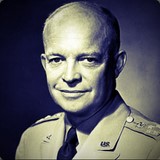
GENERAL BIDDLE SMITH
